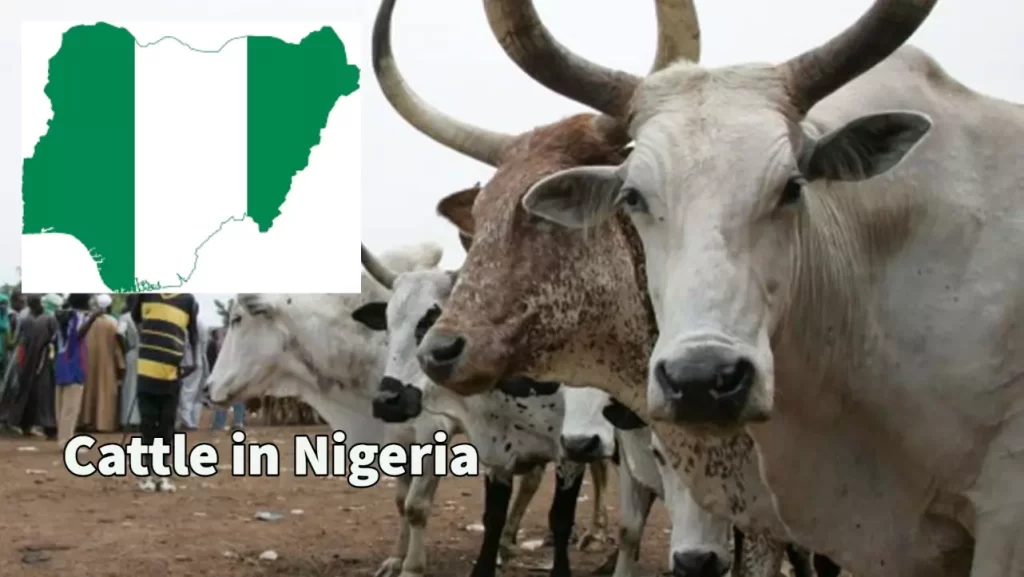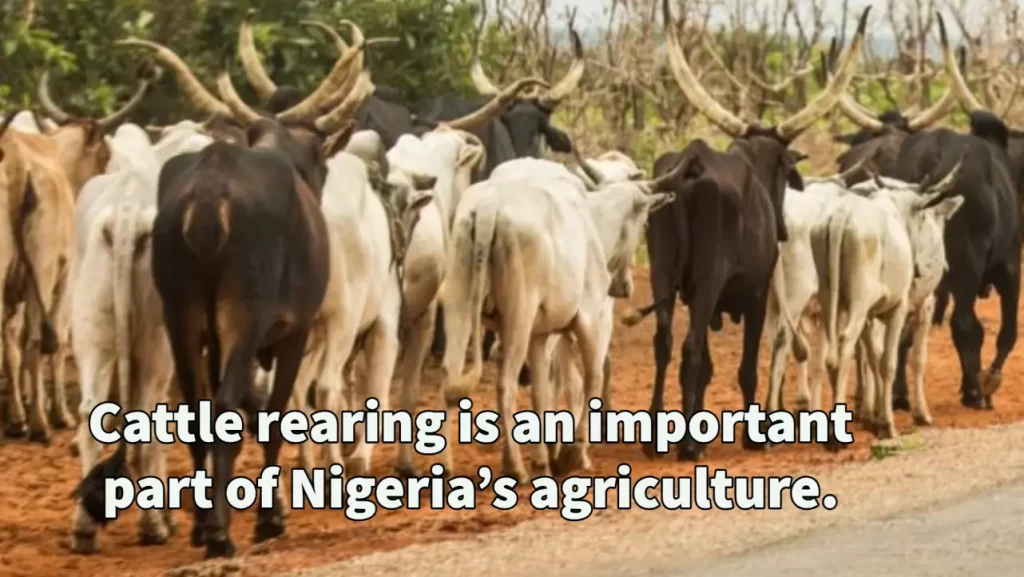Cattle rearing is an important part of Nigeria’s agriculture and is a significant contributor to the country’s economy. Nigeria is home to many cattle, with estimates suggesting that there is over 20 million head of cattle in the country. Cattle are mainly raised for meat, milk, and hides, and are an important source of income for many small farmers and herders in Nigeria.
Table of Contents
Cattle rearing in Nigeria
In Nigeria, cattle are generally raised in a traditional system known as the “extensive” or “open range” system. This involves allowing the cattle to roam freely over large areas of land, often over several kilometers, to graze on natural pastures.
Cattle may also be fed supplements such as hay, straw, and concentrates, particularly during the dry season when natural pastures are scarce.
Small-scale cattle rearing in Nigeria
Cattle rearing in Nigeria is often carried out by small-scale farmers and herders, many of whom rely on their cattle for their livelihoods. However, the sector is also dominated by larger commercial farmers who operate large ranches and feedlots.
One of the challenges facing the cattle industry in Nigeria is the prevalence of diseases such as bovine tuberculosis, foot and mouth disease, and brucellosis.
These diseases can have a major impact on the health and productivity of cattle, and can also be transmitted to humans. To address this issue, the Nigerian government has implemented a number of measures, including vaccination campaigns and disease control programs.
Challenge of cattle rearing in Nigeria
Another challenge facing the cattle industry in Nigeria is the lack of infrastructure, such as roads and storage facilities, which can make it difficult to transport and market cattle and related products.
In addition, the sector is often subject to price fluctuations, which can make it difficult for farmers and herders to plan for the future

Nigerian cattle breeds
There are several breeds of cattle that are raised in Nigeria, including both local and exotic breeds. Some of the most common breeds of cattle found in Nigeria include:
- Red Sokoto: This is a local breed that is well adapted to the hot and arid conditions of northern Nigeria. It is a small to medium-sized breed, with a red or brown coat, and is known for its hardiness and ability to thrive in harsh environments.
- White Fulani: This is another local breed that is widely raised in Nigeria, particularly in the northern and central regions of the country. It is a medium to large-sized breed, with a white or light-colored coat, and is known for its good milk production.
- N’dama: This is a small to medium-sized breed that is native to West Africa. It is well adapted to southern Nigeria’s humid and tropical conditions and is known for its good resistance to diseases such as trypanosomiasis.
- Brahman: This is an exotic breed introduced to Nigeria from India. It is a large-sized breed, with a distinctive hump on its back, and is known for its heat and drought tolerance. It is often used as a crossbred with local breeds to improve the hardiness and productivity of the offspring.
- Jersey: This is another exotic breed that is widely raised in Nigeria. It is a small to medium-sized breed, with a light-colored coat, and is known for its high milk production and good-quality milk.
Best cattle breed in Nigeria
It is difficult to say which is the “best” breed of cattle in Nigeria, as different breeds are well suited to different environments and purposes.
Some breeds may be better suited to certain regions of the country or may be more adapted to certain production systems. In addition, what is considered the “best” breed may vary depending on the specific goals of the farmer or rancher.
That being said, some of the breeds of cattle that are widely considered to be well suited to the conditions of Nigeria include the Red Sokoto, White Fulani, N’dama, and Brahman.
These breeds are known for their hardiness and ability to thrive in the hot and often challenging conditions of Nigeria. They are also well adapted to the extensive or open-range system of cattle rearing that is common in the country.
Ultimately, the best breed of cattle for a particular farmer or rancher will depend on a variety of factors, including the specific conditions of their farm or ranch, their production goals, and their resources and management practices.
It is important for farmers and ranchers to carefully consider these factors when deciding which breed of cattle to raise.
Importance of cattle rearing in Nigeria
Cattle rearing is an important economic activity in Nigeria, as it is a major source of food, income, and employment for many people in the country. Cattle are raised for their meat, milk, and hides, which are all important products in Nigeria.
In addition, cattle play a cultural and social role in Nigeria, as they are often given as gifts or used as dowries in traditional marriage ceremonies.
There are many factors that contribute to the importance of cattle rearing in Nigeria, including the country’s large and growing population, the high demand for animal protein, and the relatively low cost of raising cattle compared to other livestock.
Cattle are also well-suited to the hot, dry climate of much of Nigeria, making them an attractive choice for farmers and ranchers in the region.
Overall, cattle rearing is a vital economic sector in Nigeria and plays a central role in the country’s food security, economic development, and cultural traditions.
Conclusion
In conclusion, cattle rearing is a critical economic activity in Nigeria that plays a vital role in the country’s food security, economic development, and cultural traditions.
Cattle are a major source of food, income, and employment for many people in Nigeria, and they are also important for the production of milk, hides, and other products.
The high demand for animal protein and the relatively low cost of raising cattle compared to other livestock make cattle rearing an attractive and important economic sector in Nigeria.
Additionally, the hot, dry climate of much of Nigeria is well-suited to the raising of cattle, further contributing to the importance of this activity in the country.
Overall, cattle rearing is a vital part of the Nigerian economy and will likely continue to be an important economic sector in the country for the foreseeable future.
Also read: Black hole duck for farming

